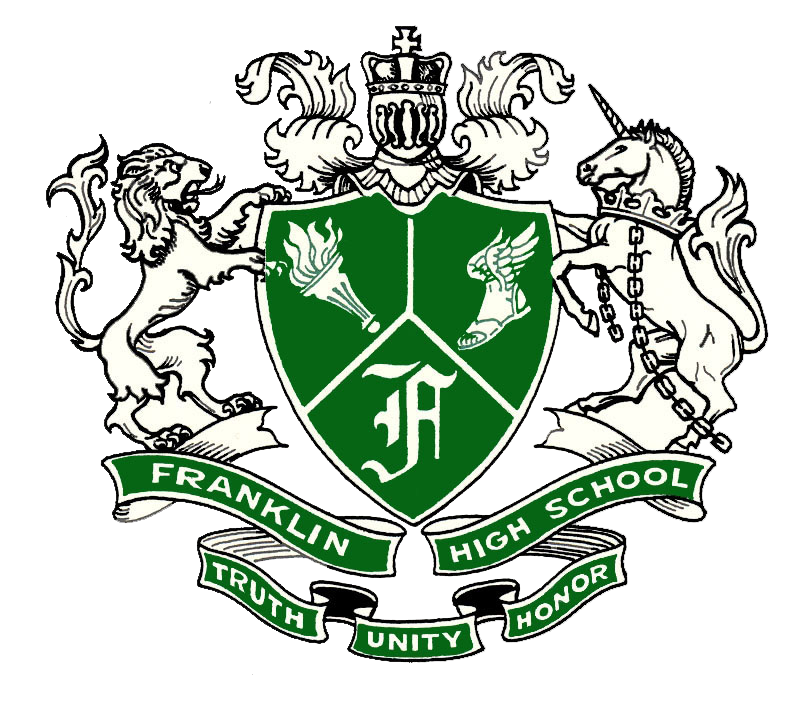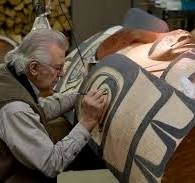Remembering Duane Pasco, Artist May 14, 1932 – July 31, 2024
Duane Pasco was part of a group of committed non-native artists, historians, linguists, and cultural scholars who shared an overpowering passion for Northwest, US, and Canadian peoples and cultures.
Born in Seattle, he spent his early years in Alaska developing his appreciation of and love for native cultures. He returned to Seattle and completed his education at Franklin in 1950, where he was drawn to study art. Since Franklin did not offer indigenous culture and art classes, he could be found at the Seattle Public Library where he studied and practiced his art.
Duane Pasco carves a house pole in 2012. The photo was taken by Tom Twigg while Twigg was making a film about the creation of the house pole. Kitsap Sun.
Following military service, art school, and various jobs, Pasco decided to devote his life to indigenous art in the 1960s. As a non-native artist, he experienced some pushback from those who felt that an English/Irish descendent should not co-opt Northwest designs. He eventually earned acceptance through his immersion in the language and culture of the ’Ksan and other regional groups. Excelling in both one- and two-dimensional art, he worked to preserve and share Pacific Northwest indigenous art styles.
His wide-ranging legacy includes the four totems at Occidental Square, paintings and murals, decorated bent boxes, and carved canoes for the S’Klallam tribe. His carvings and paintings have found respected pride-of-place in collections throughout the world.
Tsuxs Ne’x: Meaning small Killer Whale, a twenty-foot Northern style canoe carved as a demonstration at the Seattle Science Center in 1985 by Duane Pasco.
Pasco shared his artistic style and techniques with thousands of native and non-native art students and was lauded as a patient, knowledgeable teacher with a great sense of humor. His teaching included participation in the restoration of traditionally designed art in the villages of the ’Ksan in Canada where their art was once prohibited.
Detail of Occidental Park totem, photo by Ben Schwartz.
Pasco, along with his wife, Betty, a Suquamish tribal elder and renowned weaver, artist, and teacher, founded the JayHawk Institute in 2011 on their property in Poulsbo, WA. (https://jayhawkinstitute.org/). The Institute’s Mission is: “To learn, conserve and share the legacy of Pacific Northwest indigenous art and history.” The Institute honors the centuries of teachings and highest authenticity of Northwest ancestors. Classes are offered in tool making, carving, bent-corner boxes, bowl and small traditional musical instrument carving, weaving, drum making, cedar-bark sail making, and canoe fabrication and carving.
The JayHawk Institute has produced a series of eleven short films that make up the Canoe Legacy Project detailing the Salish canoe culture; the first in the series is below. (You can watch the others here: https://vimeo.com/showcase/2481973. Or use QR code: (insert)
Duane Pasco is survived by his wife, seven children and stepchildren, and numerous grandchildren.
Caption for canoe picture: Tsuxs Ne’x: Meaning small Killer Whale, a twenty-foot Northern style canoe carved as a demonstration at the Seattle Science Center in 1985 by Duane Pasco.



